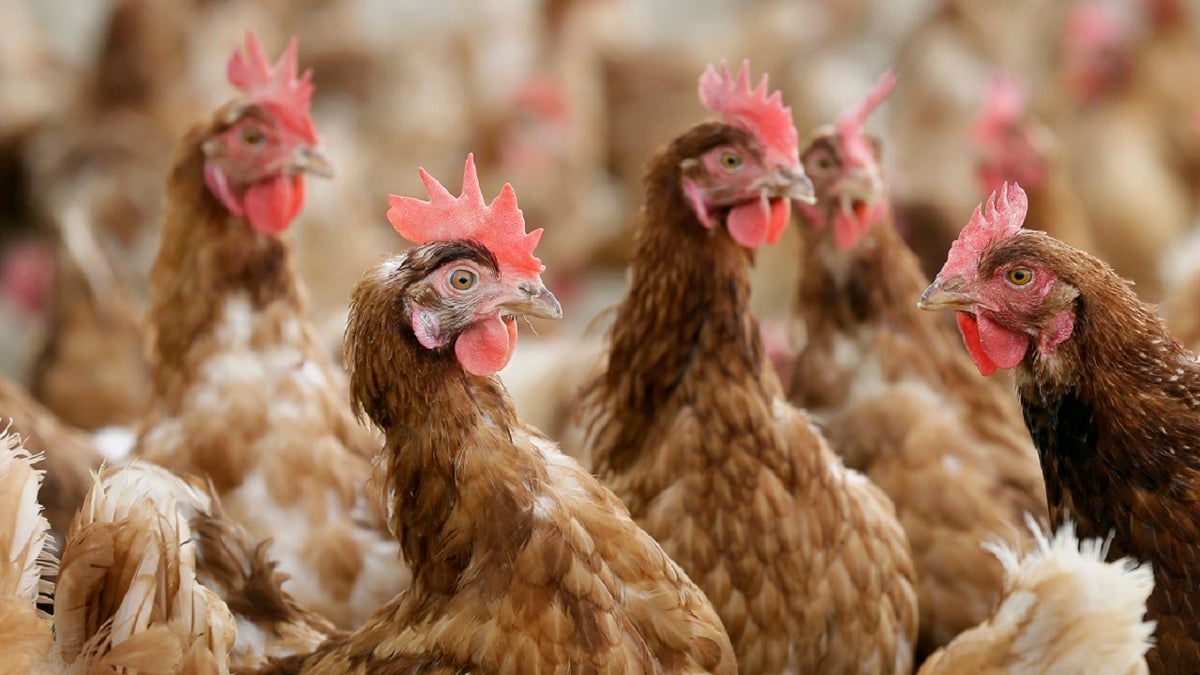Fox News Flash top headlines for July 15
Fox News Flash top headlines are here. Check out what's clicking on Foxnews.com.
A man in China has been hospitalized with the H5N6 strain of the bird flu, one of several potentially deadly viruses that have been discovered in poultry flocks over the years, reports said Thursday.
The 55-year-old tested positive for the bug on July 6 after he came down with a fever and was hospitalized in Sichuan, located in the southwestern section of the country, the New York Times reported, citing the state-run China Global Television Network.
The case is one of 33 seen in the Western Pacific Region since 2014, data from the World Health Organization show, and state-run media, citing unnamed experts, said the latest infection does not pose a risk for large-scale transmission among humans, the outlet reported.

In this Oct. 21, 2015, file photo, cage-free chickens stand in a fenced pasture on the Francis Blake organic farm near Waukon, Iowa. (AP)
During a brief report in English, the broadcaster said local officials "activated an emergency response and sterilized the area" once they became aware of the infection.
The broadcast didn’t explain how the man came into contact with the virus, if he worked with poultry or if any members of his family or close contacts have been quarantined or infected.
The first human infection of the H5N6 strain was originally detected in Laos in 2014 and about 60 percent of cases so far have resulted in death, according to the WHO.
The last case was reported in China in May.
CLICK HERE TO GET THE FOX NEWS APP
"Whenever avian influenza viruses are circulating in poultry, there is a risk for sporadic infection and small clusters of human cases due to exposure to infected poultry or contaminated environments. Therefore, sporadic human cases are not unexpected," the WHO explained in their last avian flu weekly update on July 9.
"With continued incidence of avian influenza due to existing and new influenza A(H5) viruses in poultry, there is a need to remain vigilant in the animal and public health sectors. Community awareness of the potential dangers for human health is essential to prevent infection in humans. Surveillance should be continued to detect human cases and early changes in transmissibility and infectivity of the viruses."
This story first appeared in the New York Post










































